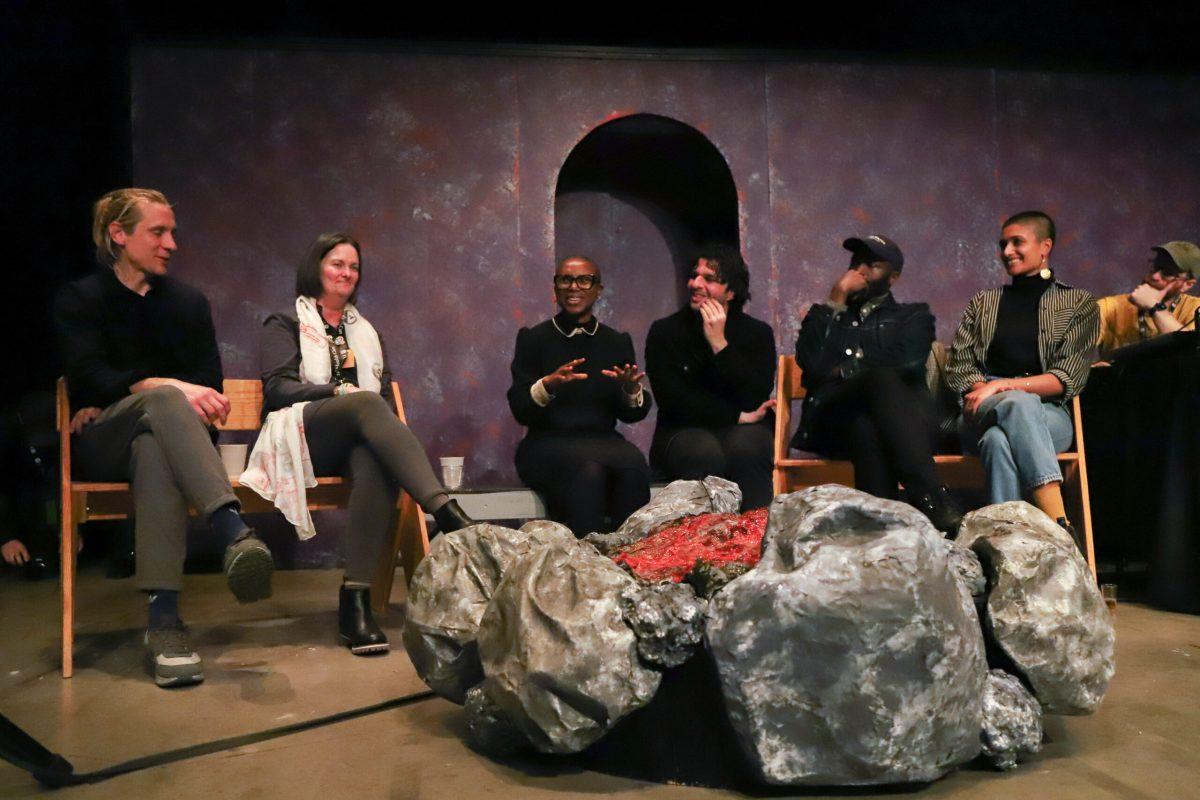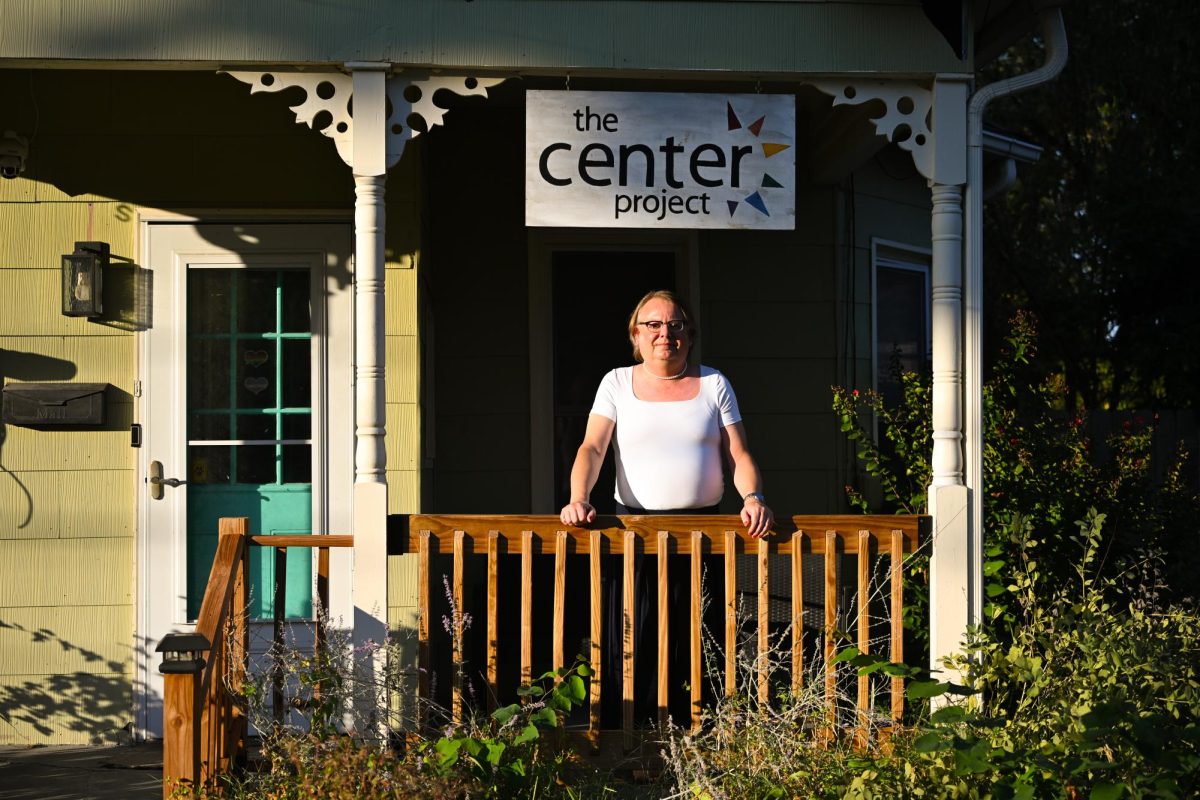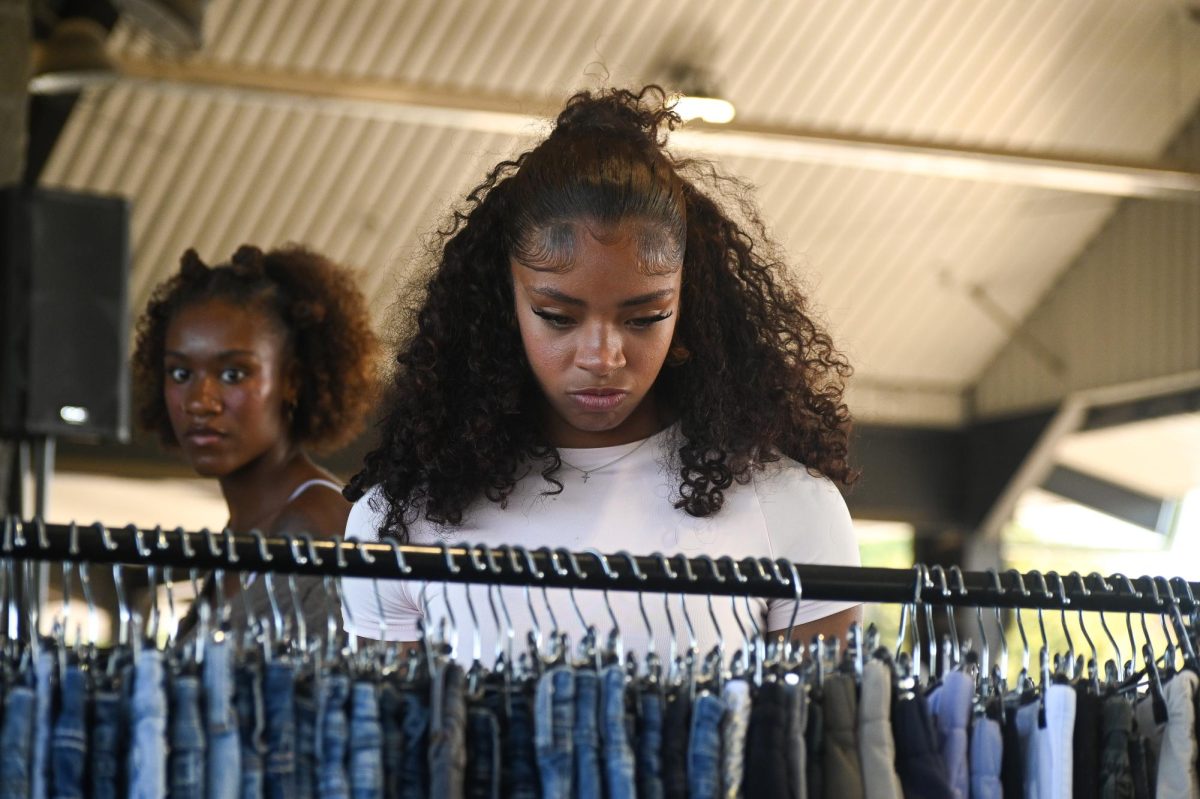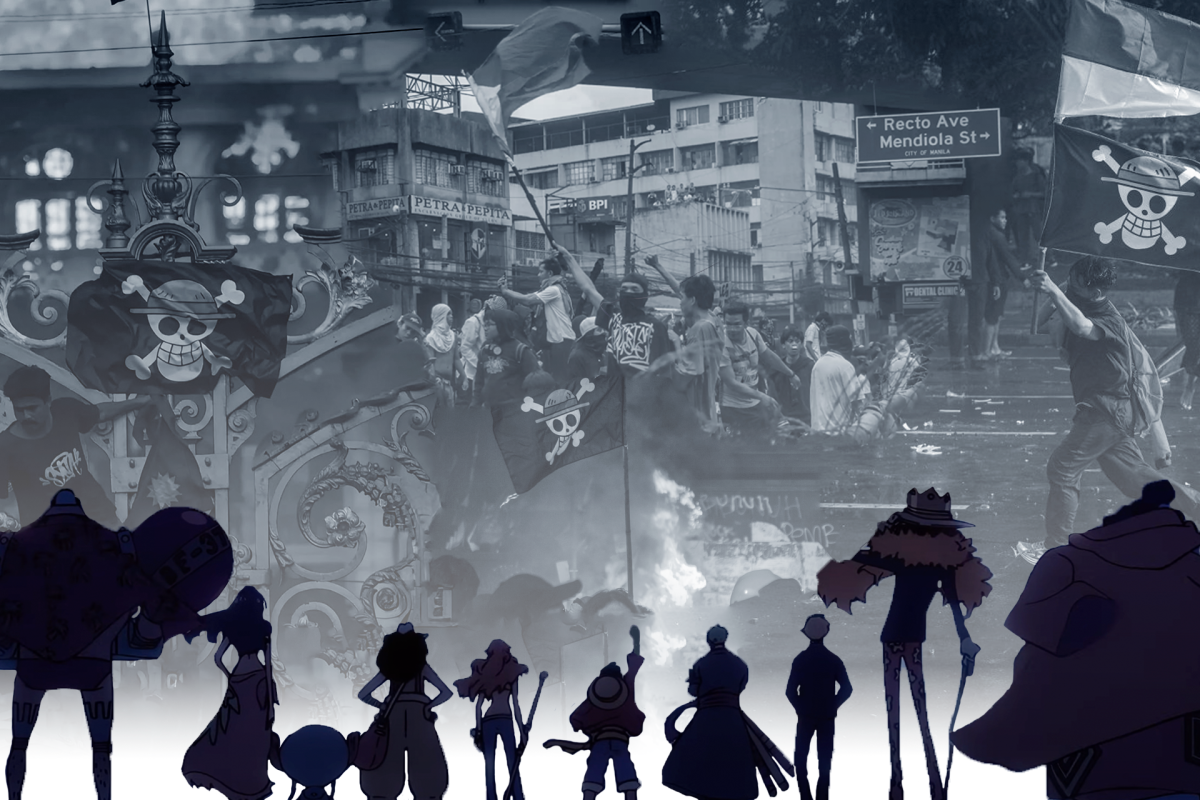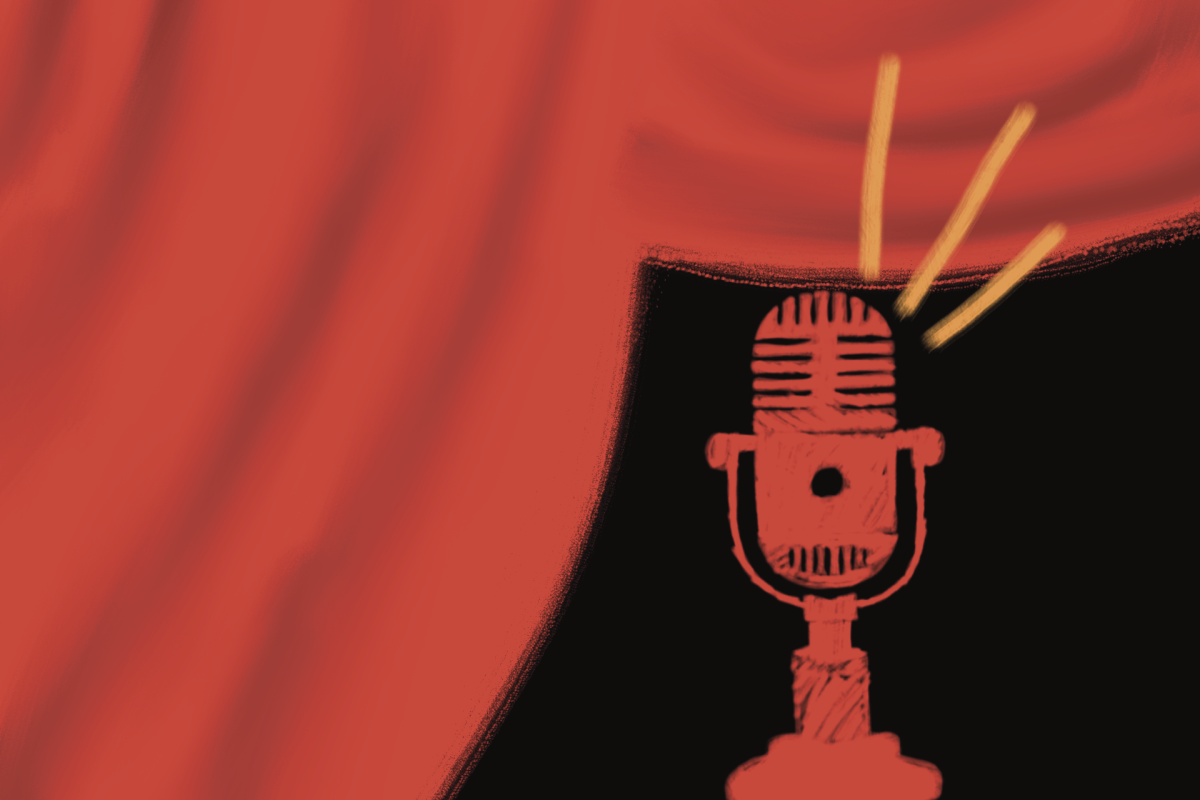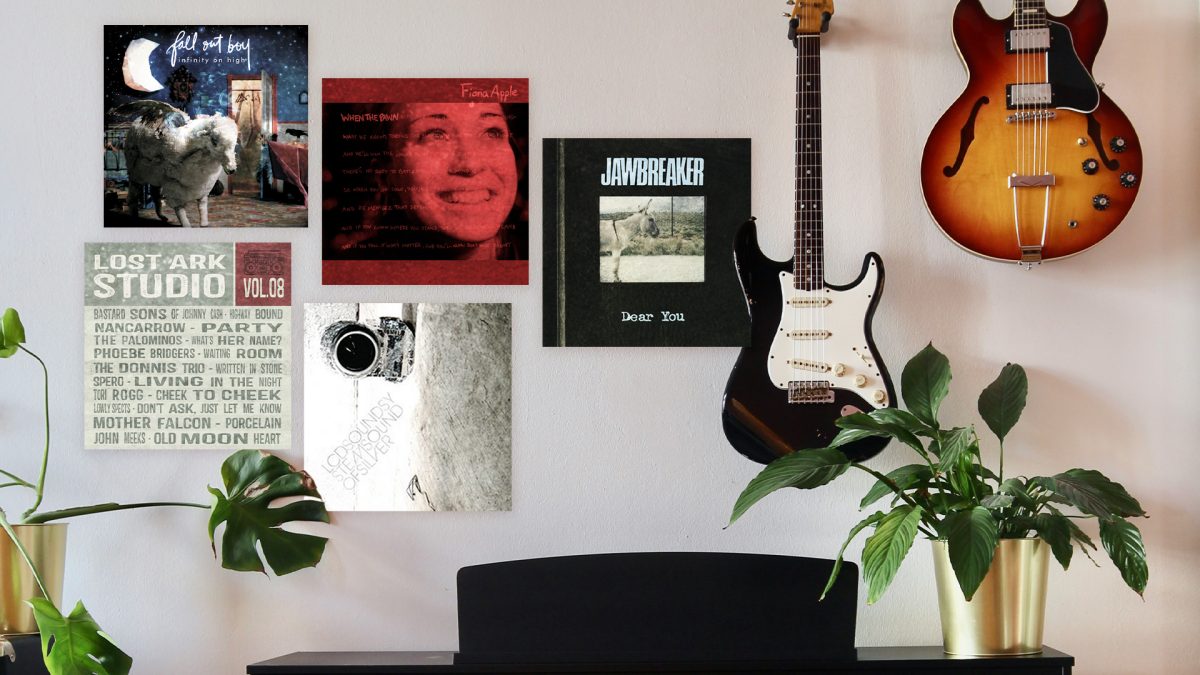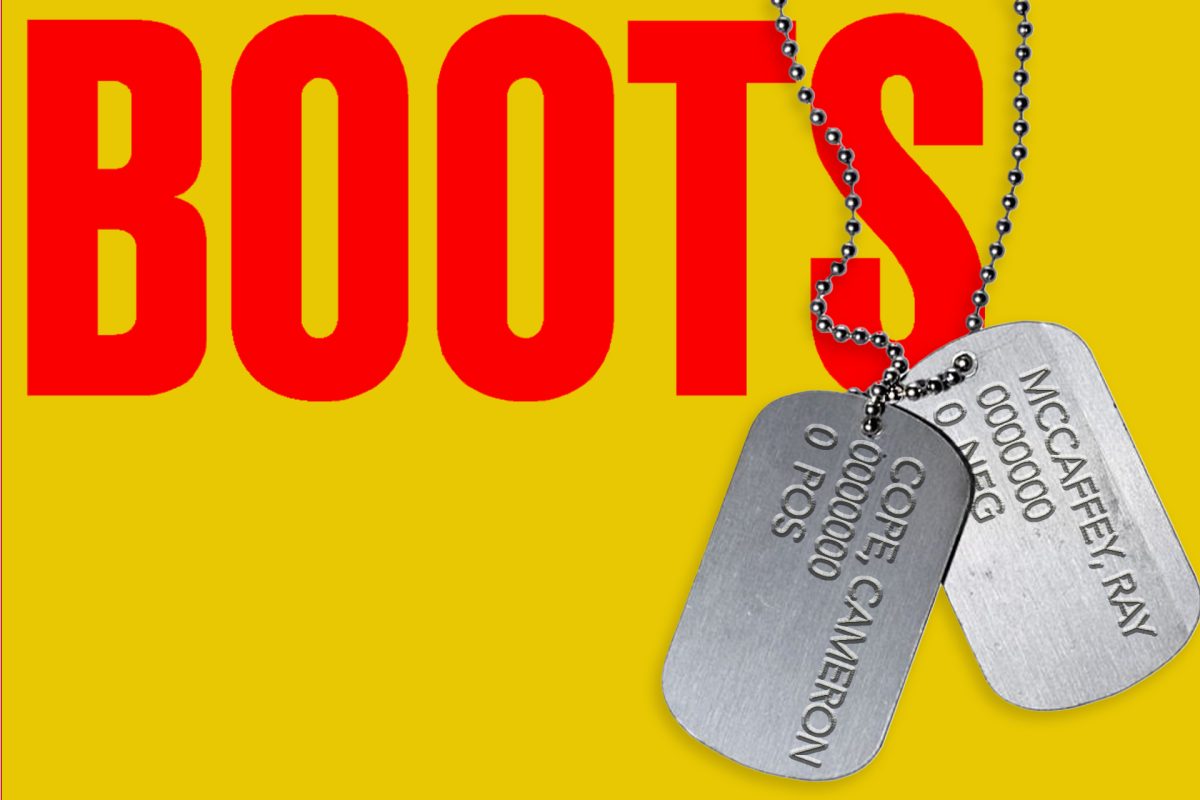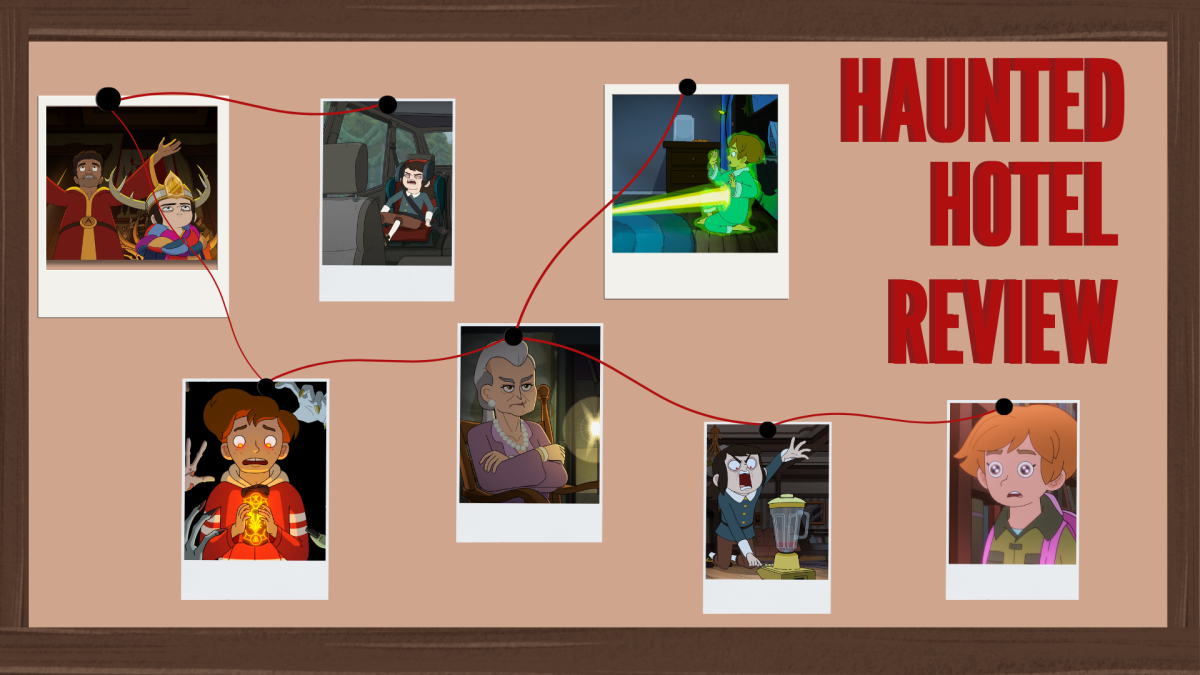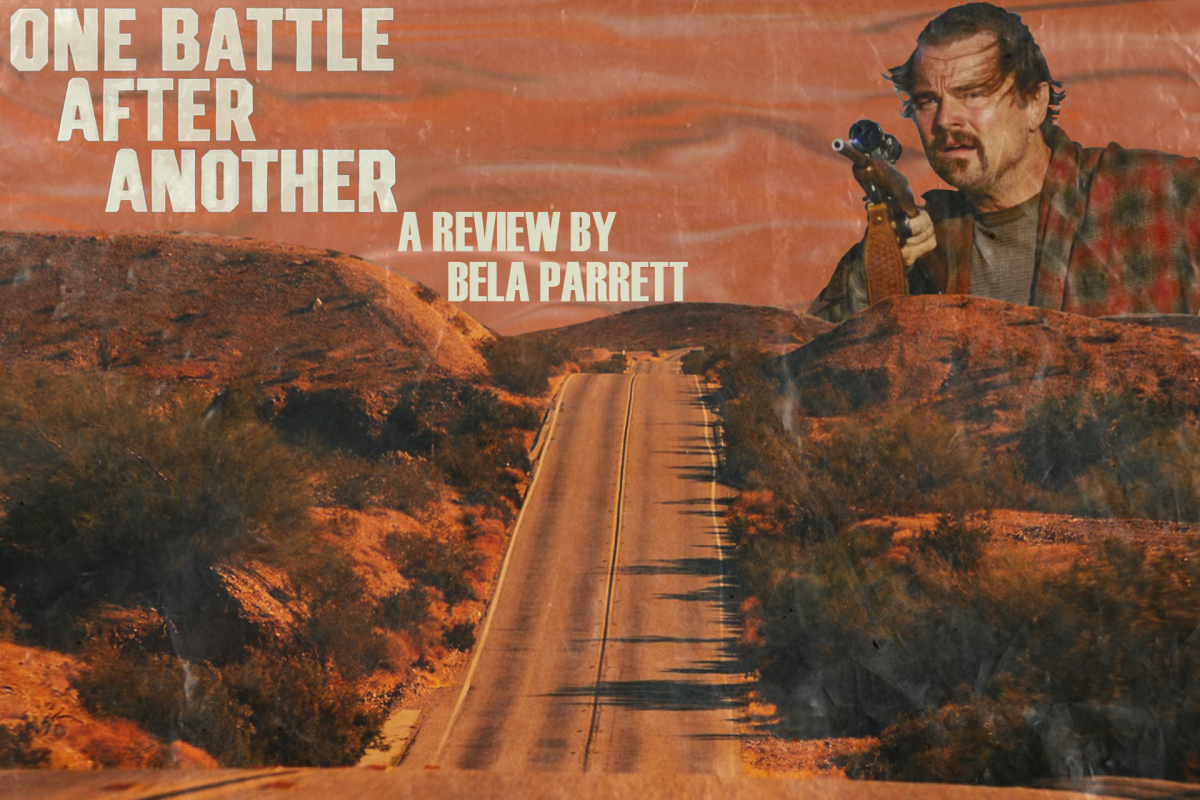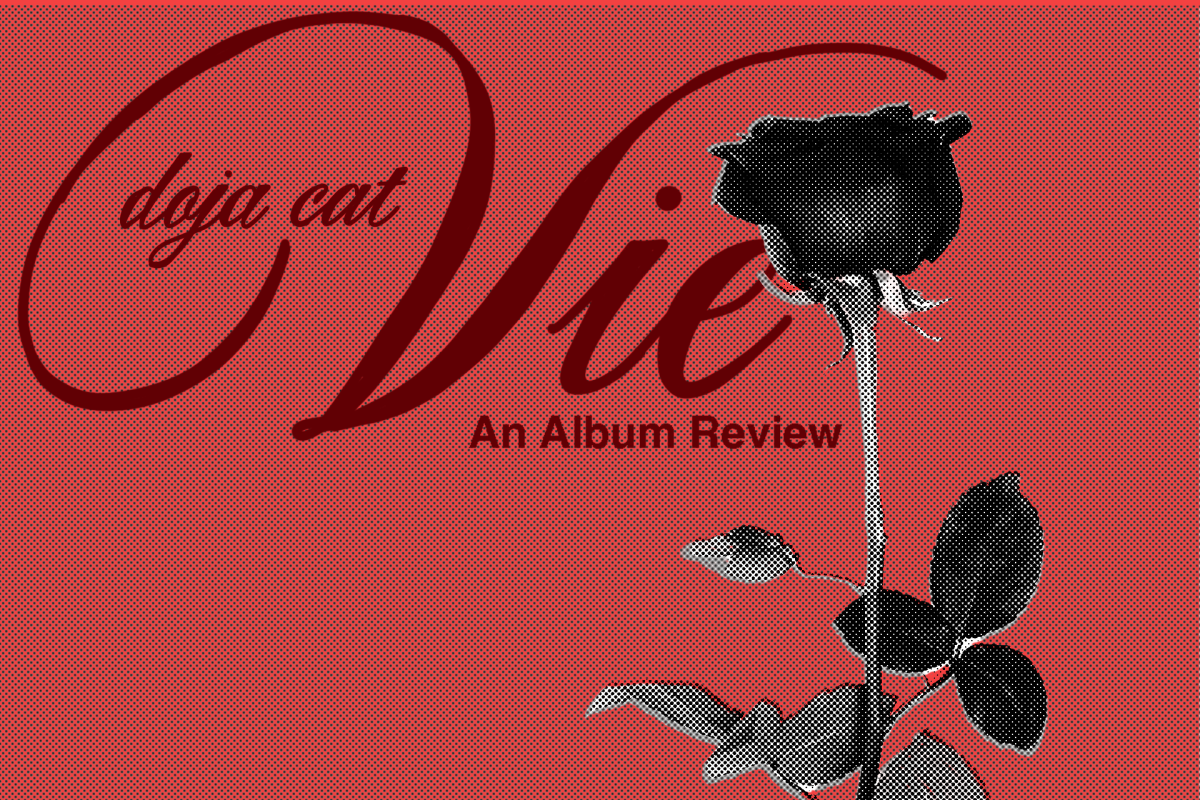The prompt of the program was “experimentation,” allowing the diverse panel of filmmakers, artists and storytellers a chance to swap stories in which they’ve had to do some trial and error.
The lights dim as s’more cookies are passed throughout the audience and a group of six artists sit around a plastic campfire. Each artist ready to share an entertaining experience worthy of a campfire story, the audience gathers around as they begin.
“Campfire Stories” brought together a panel of diverse artists for a night of storytelling, all there to recap a time where they tried something new. Among the panel were filmmakers Chloe Abrahams (“The Taste of Mango”), Milisuthando Bongela (“Milisuthando”), Alexander Abaturov (“Paradise”), Moses Bwayo (“Bobi Wine: The People’s President”) and Zach Dorn (“Moomin”). Carrie Elliott — local artist who helped create “The Community Thread” quilted tapestry — was also among the panel.
The True/False Film Fest is known for its wide array of films, concerts and events that showcase unique perspectives through documentary filmmaking and touching stories. From a puppet production that got stopped by the police to a coming of age story told through iPhone notes, there was no telling what stories were to emerge from the lineup of filmmakers, artists and storytellers. Each story as unique as its artwork, they all had only a one-word prompt to follow: “experimentation.”
Dorn, director of the short “Moomin,” kicked the night off on a comedic note, recapping his first professional puppet production where he bought an FM transmitter to broadcast to the surrounding area. When he heard talking on the other end of the radio and spotted a helicopter getting closer and closer overhead, he knew something wasn’t right. The police had showed up to see what was interfering with their signal, and made Dorn quit broadcasting — ruining his production.
“After that experience, I decided to stop being a puppeteer and that I should do the responsible thing and go into filmmaking,” Dorn said.
In a more haunting twist, Bongela told a story about her deep dive through the archives to find information for “Milisuthando.” In trying to avoid a specific film she didn’t want to watch due to triggering content, she noticed the film’s VHS tape kept reappearing where she least expected it. She took it as a sign that she needed to read the signs and watch the film.
“If I wanted to understand how we got here, I couldn’t ignore the mistakes,” Bongela said.
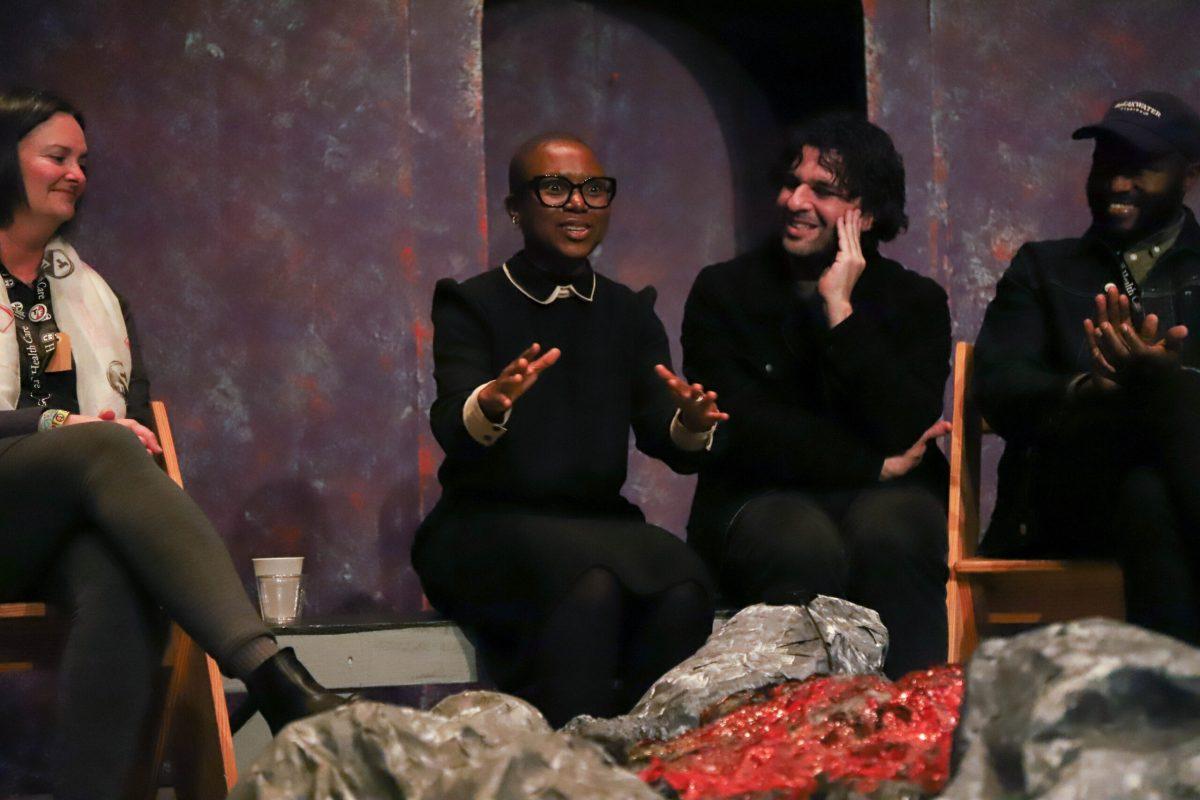
The film ended up giving her crucial information she needed to better understand her own documentary and help prepare her.
Abaturov described his experience trying to film “Paradise” through the pandemic. Filming his documentary counted on the wildfire season in Siberia, which only happens during the summer. He finally made it to Siberia during the summer of 2020 after being quarantined multiple times during his travels, but only made it in time to film one sequence. Having to wait another year before the next wildfire season, he used the time to prepare and set up his next trip in 2021. When editing, he decided to use the one sequence he shot in 2020 as the climax for his film — the moment the rain finally came.
Bwayo shared that he sacrificed a lot to document Bobi Wine, the musician-turned-leader of the opposition force in Uganda’s fascist regime. Even after being shot in the face, arrested and at risk of being kidnapped, he was adamant on finishing his project. He believed if he took the camera off of Wine and his followers, there would be no safety left to protect them. So he stayed with Wine, even under house arrest for 10 days, to finish his story.
“So much had happened in five years … but it was during this time I was able to get some of the best, really personal moments of [Wine’s] life,” Bwayo said.
Elliot described the creation of “The Community Thread” quilted tapestry on display throughout the festival at The Columbia Art League. Comprising 342 squares, over 200 people contributed to the project — including local schools. Her favorite patch is one she made of a silver carp, referencing her research with the Missouri River and invasive fish.
The final story of the night came from Abraham’s own iPhone notes. She described her experience writing the voiceover for her film “The Taste of Mango,” and drew inspiration from her own series of personal notes. From grocery lists and recipes to shower thoughts and poems, each note she read offered a meaningful glimpse into the otherwise forgotten moments of her life. Among the crowd favorites included her note: “24 May, 2019 at 20:32. Just ate some baklava — so good, it made me wet.”
Each story showcased the varying personalities of the artists through wildly funny, haunting, emotional and embarrassing tales around the campfire. The only thing missing was marshmallows.
Edited by Scout Hudson | [email protected]
Copy edited by Grace Knight


